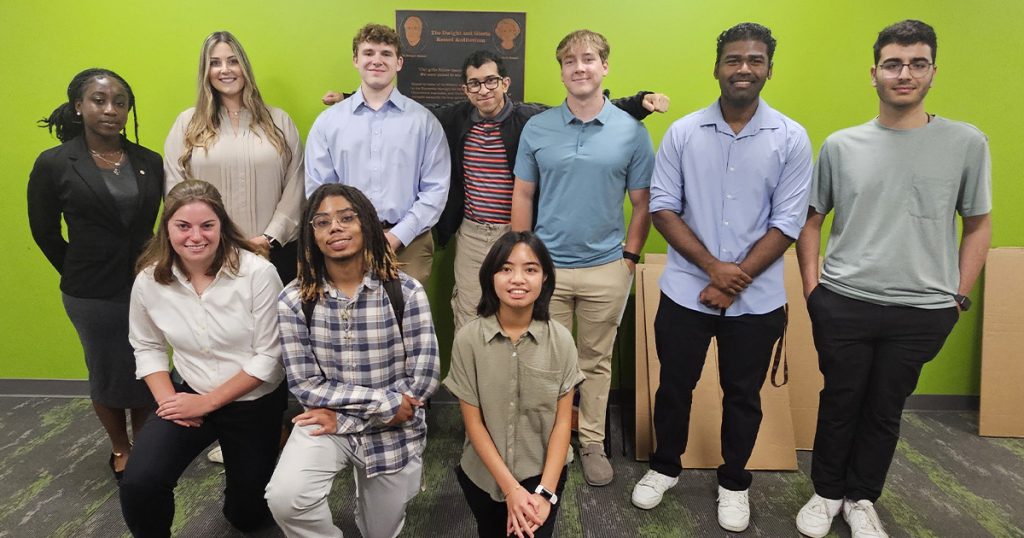Micro REU has Big Impacts
Dust-sized devices called microelectronics are all around us, though they are usually hidden by screens and cases we can interact with more comfortably.
“If you have a smart watch that’s counting your steps, that’s a microelectronic sensor system,” said ADVANCE Professor Nicole McFarlane of the Min H. Kao Department of Electrical Engineering and Computer Science (EECS). “The watch might be an inch wide, but the hardware doing the measurement and processing work is on the micrometer scale.”
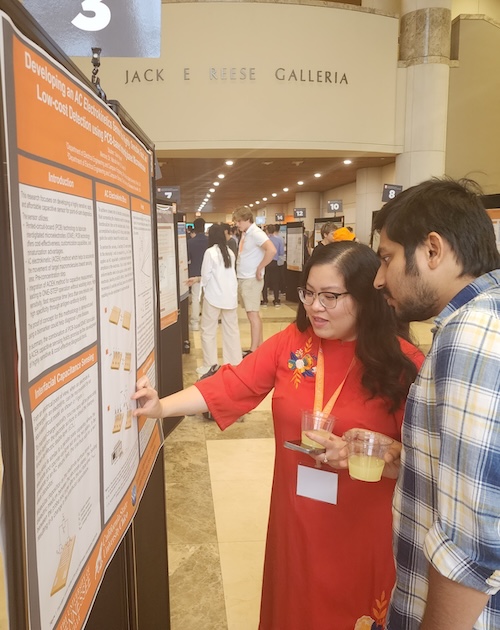 A microelectronics expert, McFarlane researches mixed digital and analog circuits and biosensor design on the micrometer (one millionth of a meter) and even nanometer (one billionth of a meter) scale. Three years ago, she secured funding to establish a National Science Foundation Research Experiences for Undergraduates (NSF REU) program in microelectronics at the University of Tennessee.
A microelectronics expert, McFarlane researches mixed digital and analog circuits and biosensor design on the micrometer (one millionth of a meter) and even nanometer (one billionth of a meter) scale. Three years ago, she secured funding to establish a National Science Foundation Research Experiences for Undergraduates (NSF REU) program in microelectronics at the University of Tennessee.
“At UT, we have a strong presence in microelectronics. We can give students a breadth of research opportunities across that area,” McFarlane said. “Maybe they’re working on coding; maybe they’re working on building hardware; maybe they’re testing new materials.”
The REU was initially funded for three years, but McFarlane had enough funding to welcome a final cohort this summer. Ultimately, the award will have given 30 students a chance to study microelectronics on UT’s Knoxville campus.
A Breadth of Microelectronics Opportunities
The NSF REU program allows undergraduate students across the United States to gain experience in laboratory research outside their home institutions—and, hopefully, ignite a love of research that propels them into graduate school.
Each REU award covers a stipend, food, housing, and research supplies for up to 10 students for three summers. At UT, REU students spends eight to 10 weeks living on campus, exploring Knoxville, and participating in professional development activities.
The main draw of the program, however, is giving each student the chance to conduct novel research under a faculty mentor.
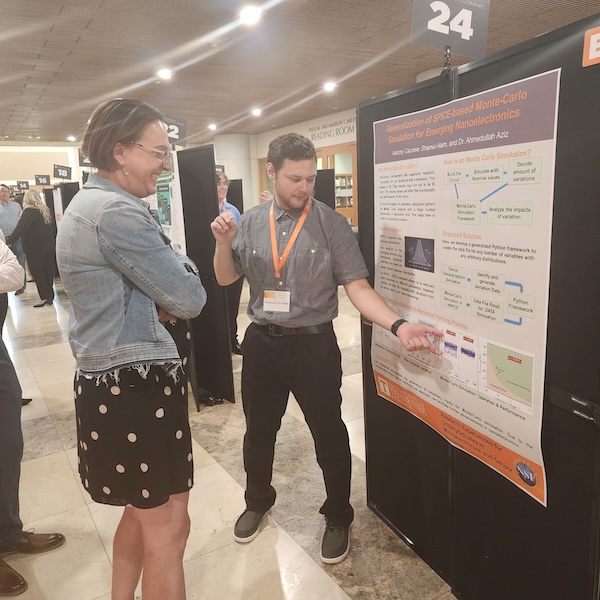
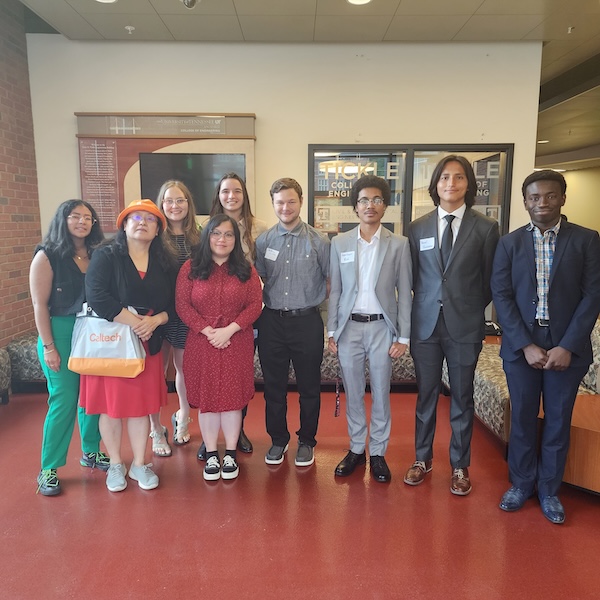
“Our department has some great facilities for microelectronics, but it’s the faculty and the graduate students who help out as mentors that make the program work,” McFarlane said.
Including McFarlane, nine EECS faculty members have participated in the REU, mentoring students in material design, circuit design, software development and implementation, and other aspects of microelectronics research.
REU students have contributed to a broad variety of faculty projects, including designing sensors for cell cultures and American Sign Language translation; developing and testing semiconductor materials; and stress-testing microelectronics destined for space exploration.
Increased Interest in Graduate School
Because REU programs are open to any student taking undergraduate courses the following fall, EECS REU mentors may be working with rising sophomores who have no prior experience or rising seniors who have completed multiple internships.
The breadth of microelectronics research also means that incoming students may be majoring in electrical engineering, computer science, biology, math, or physics.
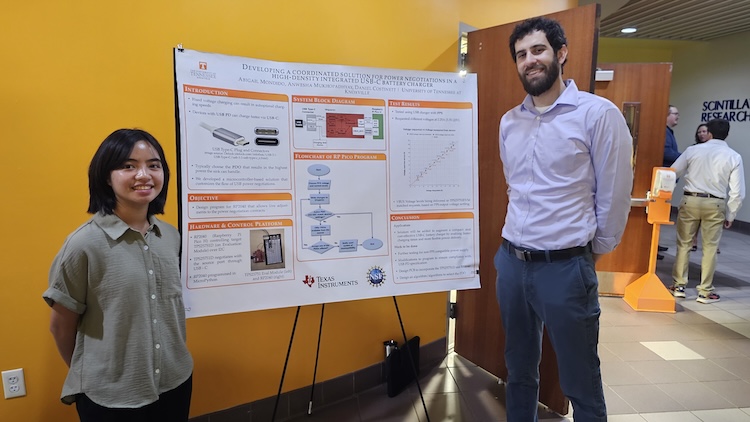
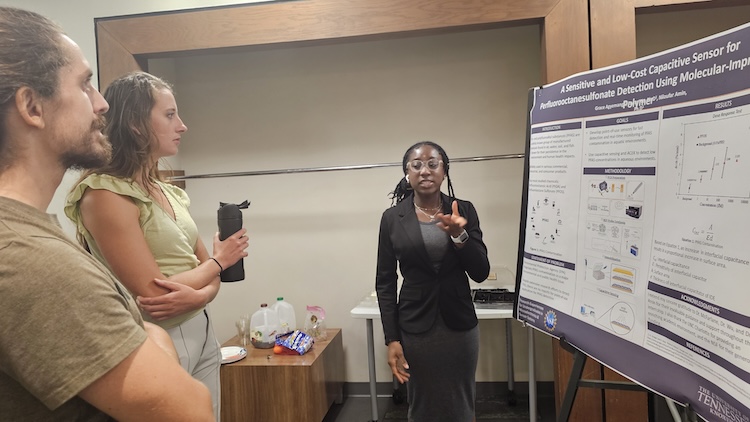
Therefore, rather than a standardized test, McFarlane has REU students take surveys at the start and end of the summer to assess how their individual familiarity with microelectronics theory, comfort with research techniques, and career goals has changed over the course of the program.
“Without fail, on the exit survey, they say they learned how to do research,” she said. “In a lot of cases, they weren’t considering graduate school when they started the REU, but they now see that as a path.”
Exploring aspects of microelectronics that are not available at their home institutions certainly contributes to the REU students’ increased interest in research, but McFarlane believes it is the experience of overcoming unforeseen challenges that seals the deal.
“What we teach in classes is very prescribed and it’s very theoretical. You don’t always have the opportunity to work on something that fails, then get to fix it,” she said. “What they’re doing is not what you learn at the undergraduate level. It’s not classwork. They’re learning multiple skills that will carry them forward, whether they go to grad school or to industry.”
Contact
Izzie Gall (865-974-7203, egall4@utk.edu)
